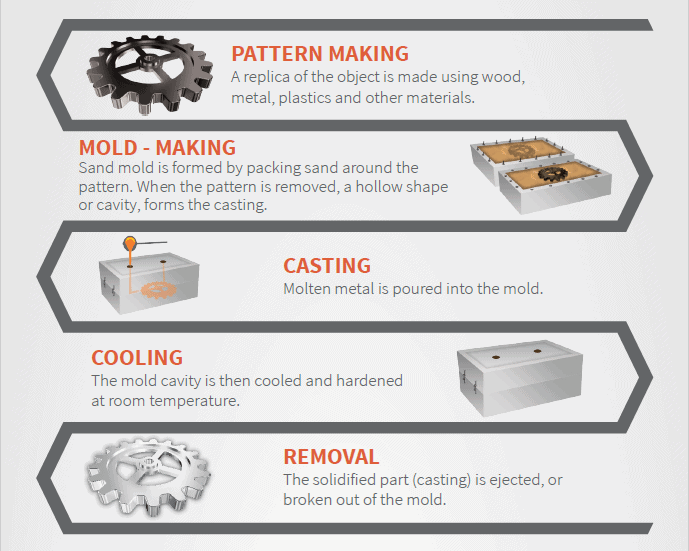In our first two articles about large-scale 3D printing applications we covered Fit-Form-Function and Molds & Tooling. This time we will examine the benefits of integrating 3D printing into the Sand Casting process.
What is Sand Casting?
Sand Molded Casting, also known as Metal Casting, is a process by which a special mold from sand is created to form metal objects at very high temperatures. The technique is widely applied in heavy industries such as Aerospace, Automotive, Railway and Shipping as a solution for short-run production. Here’s how it works:

The Sand Casting Process
Sand Casting is a relatively simple process enabling manufacturers to produce metal objects. However, there are several challenges involved, including:
- High costs
- Manual labor required
- Lengthy process duration
- High margins of error
- Limitations in producing complicated patterns
How can large-scale 3D printing help?
Traditionally, the replica is made manually using different materials types and techniques. The process is not 'digital’, meaning it takes longer to complete and can result in accuracy issues.
Integrating large-scale 3D printing into a sand casting process offers the following benefits, as compared to a standard sand casting process:
- Reducing replica and pattern production time
- Creating a highly accurate replica from a digital file
- Significantly lowering costs
- Replica design flexibility
These advantages are even greater when the pattern-making process is done in-house instead of being outsourced. Production time can be reduced by up to 80%, once the process is fully managed and controlled internally.
Learn more about modeling, building and testing custom products fast and cost-efficiently.

With over 22 years in the printing industry, Gil Lavi is a Sr. 3D-Printing Specialist with vast experience in implementing diverse 3D-printing technologies in design and manufacturing processes.
Connect with Gil on Linkedin HERE.
